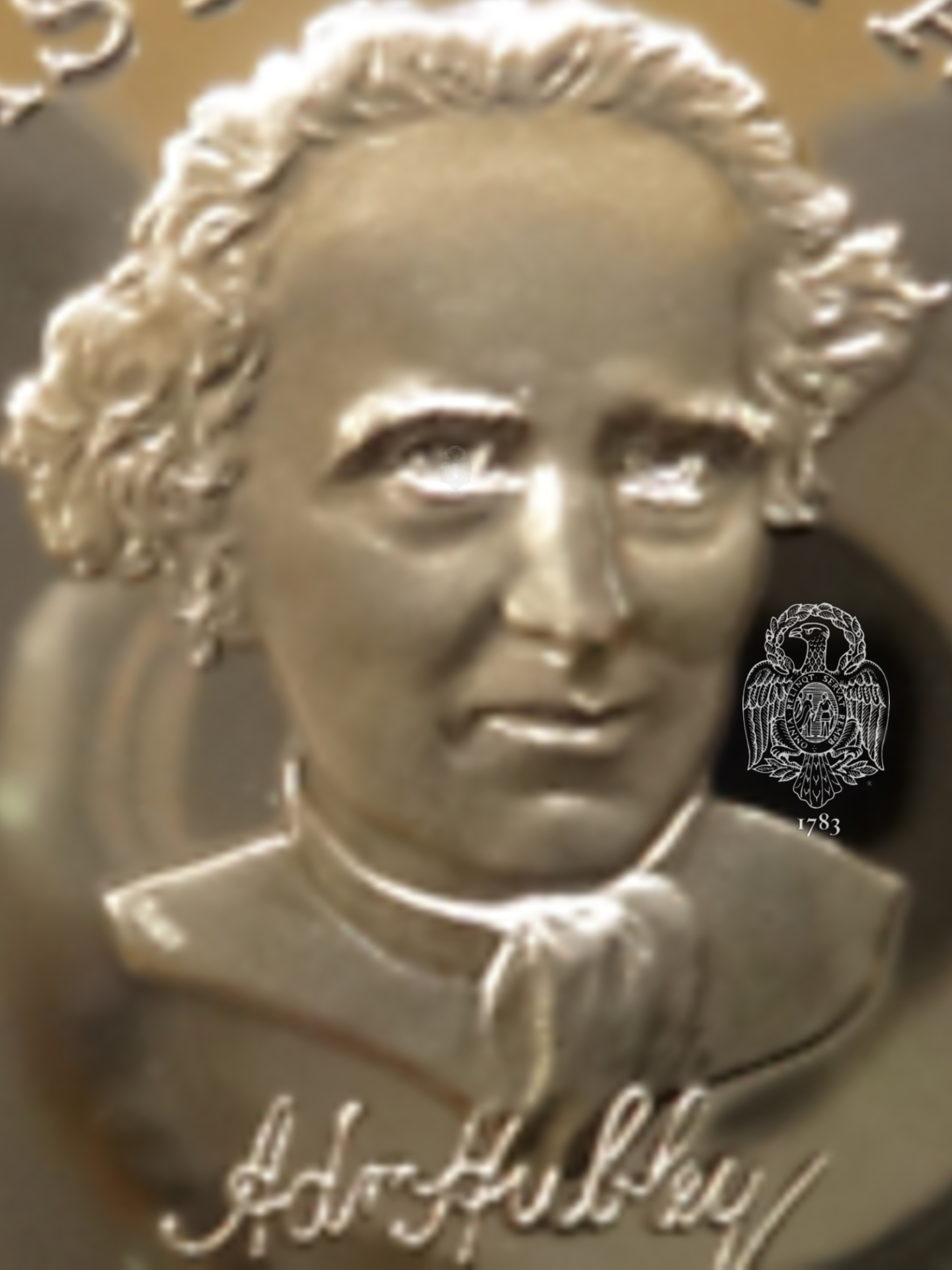Lt. Col. Adam Hubley
Adam Hubley was one of the outstanding officers of the Pennsylvania Line, but relatively little has been written about him. He was born in Lancaster on 9 January 1759, the fourth son of Michael and Rosanna (Strumpf) Hubley. The father was born in Germany in 1722, and in 1764 and 1765 was a burgess of Lancaster. In 1777 the Supreme Executive Council of the state gave the father the rank of Captain as Barrack Master at Lancaster, then the largest inland town in Pennsylvania and perhaps in the nation, and in June he was made a Justice under the Constitution of 1776. Besides Adam, three other of Michael’s sons were supporters of the Revolution. John, born 1747, was a delegate to the state constitutional convention of 1776, a member of the state Council of Safety, Commissary of Continental Stores in the state, a member of the Pennsylvania Ratifying Convention in 1787, and in every respect was one of Lancaster’s most prominent Revolutionary citizens; Joseph Hubley, born 1750, was commissioned Captain in the Third Pennsylvania Battalion on 5 January 1776 and is said to have been an aide to Horatio Gates ; Adam Hubley’s younger brother George, born in 1753, was commissioned a Captain in the German Regiment on 8 July 1776, was promoted to Major on 9 April 1777, and died in service 7 February 1779. In addition to these four brothers, the Hubley family also contributed three other brothers, their first cousins Frederick, Jacob and Bernard [an Original Member of the Society] Hubley to the Revolutionary cause.
Adam Hubley entered service on 27 October 1775 as a First Lieutenant in the First Pennsylvania Battalion, Colonel John Philip de Haas ; his later promotion to captain is undocumented, but must have been sometime in 1776. The most notable service of the battalion was in the Canadian Campaign of 1776 which history has already been given. The American troops eventually fell back to Ticonderoga in July and the men’s enlistments expired in October, but the troops agreed to remain in that garrison for three more weeks to hold the position. The battalion eventually returned to Pennsylvania in November.
On 6 December 1776 Hubley was promoted to Major of the newly-organized Tenth Pennsylvania Regiment, the command structure of which was unusually complicated. On 12 January 1777 however he was transferred to Hartley’s Additional Regiment, then on 12 March he was promoted to Lt. Colonel and transferred back to the Tenth Regiment, where he served until 5 June 1779.
In its initial operations at Bound Brook, New Jersey, and elsewhere in the area the regiment suffered notable casualties not only from battle losses but also from illness. It nevertheless was present at Brandywine, Paoli and Germantown, and by November was very deficient in strength. The regiment’s winter quarters were at Valley Forge and there Hubley took the Oath of Allegiance to the United States on 12 May 1778.
In June 1778 the Tenth Pennsylvania fought at Monmouth. On 1 July the old Eleventh Pennsylvania Regiment was amalgamated with the Tenth, in September the regiment moved to White Plains, New York, and it spent the winter of 1778-1779 at Middlebrook, New Jersey. In June 1779 Hubley became Lt. Colonel Commandant of the “New” Eleventh Pennsylvania Regiment.
The chief operations of the Eleventh were in connection with Sullivan’s Expedition May to November 1779, a description of which has already been given. After the campaign the regiment remained assigned to the Brigade of General Edward Hand [an Original Member of the Society] and was active chiefly in northern New Jersey on routine duty. The regiment went into winter quarters at Morristown at the end of 1780 and, sad to say, it was among the men of this regiment that the revolt of the Pennsylvania Line began on 1 January 1781. When the Line was re-formed later that month the regiment was done away with, and Adam Hubley retired from the service on 1 January 1781.
Hubley returned to his life at Lancaster, and on 14 May 1781 was made Lieutenant of Lancaster County. He held the office until 30 October 1783 and was then elected to represent the county in the Pennsylvania Assembly, where he continued until 1787. In 1790 and 1791, under the new Constitution of Pennsylvania, he represented Lancaster and York Counties in the State Senate. Like most of his fellow officers he supported the “Republicans” and their successors, the Federalists.
When the Society of the Cincinnati of Pennsylvania was formed in November 1783 Hubley signed their “Parchment Roll” as well as the “Pay Order of 1784”.
On 10 April 1783 Hubley married Lydia, daughter of Robert and Mary (Peel) Field of Burlington, New Jersey. By this marriage there were three daughters. In the census of 1790 Hubley was counted in Lancaster Borough with one other male over sixteen years of age and six free white females About 1793, after his stint in the State Legislature, Hubley was appointed to the lucrative and desireable post of Auctioneer of Philadelphia, where he removed and where he died on 4 March 1798.

